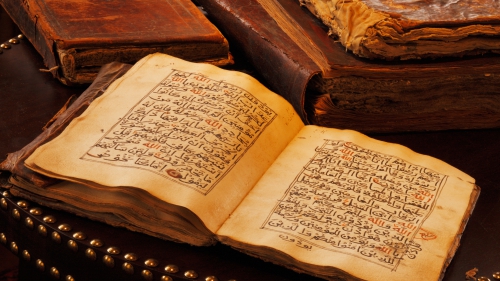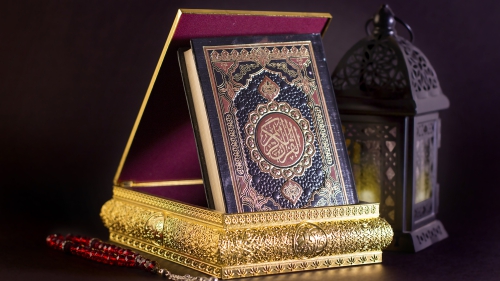On Azmil Umoor in the Qur’an

The words عَزْمِ الْأُمُورِ (Azmil Umoor) appear in the Qur’an three times. The phrase generally means the best course of action. It could also mean behavior that is worthy of being aspired. In a given situation, the best course of action a person can take could be termed as Azmil Umoor.
In all three places in the Qur’an where this phrase is mentioned, it is used for people who practice Sabr (patience). The first occurrence of Azmil Umoor is in Surah Imran.

“You are sure to be tested through your possessions and persons; you are sure to hear much that is hurtful from those who were given the Scripture before you and from those who associate others with God. If you are steadfast and mindful of God, that is the best course. (3:186)
Here, Allah (SWT) says that we will be tested with our possessions and our loved ones. The verse goes on to mention the difficulties during Da’wah — where people will say hurtful things. The verse ends with the statement, if you are patient and mindful of God, then that is Azmil Umoor.
The second place is in Surah Luqman, where Luqman is advising his son.

Keep up the prayer, my son; command what is right; forbid what is wrong; bear anything that happens to you steadfastly: these are things to be aspired to. (31:17)
Luqman is teaching his son to establish prayer, command right, and forbid evil. He also advises his son to be patient over any adversity that befalls him. The verse ends by saying, indeed that is from Azmil Umoor.
The third and last mention of Azmil Umoor is in Surah Shua’ra.

Though if a person is patient and forgives, this is one of the greatest things. (42:43)
Allah says that if we are patient and forgive, then that is definitely Azmil Umoor.
Let us now compare these ayahs linguistically. In the first two places, Allah mentions إِنَّ ذَٰلِكَ مِنْ عَزْمِ الْأُمُورِ which means “Indeed, that is from Azmil Umoor”. In the last verse, the verse reads إِنَّ ذَٰلِكَ لَمِنْ عَزْمِ الْأُمُورِ. There is an additional لَ (lam) which is used for an added emphasis. This seems to indicate that this particular action is surely and definitely Azmil Umoor. When we go back to the verses, we see that in Surah Shua’ra, apart from patience, there is also mention of forgiveness.
In the first two instances, the adversity is in terms of loss of life, property, hurtful words during Da’wah, etc. The person who lost his belongings in a flood has no choice but to be patient. He can curse his fate/destiny, and say inappropriate things about God, which is bad, but he has no other choice to set his affairs right.
But in the last verse, there is mention of forgiveness. Which means this person was wronged. And when there is a wrong done, there are two options — to take revenge or to forgive. Those who can control their emotions, stay patient, and forgive — Allah says such an action is no doubt, definitely from Azmil Umoor. Congratulations to those who can do both — staying patient and forgive others.
May Allah makes us all steadfast in our trials, give us the strength to forgive others for their shortcomings towards us, and give us the opportunity to do actions that can be counted as Azmil Umoor. Ameen.
From the explanation of Surah Shua’ra on Bayyinah TV. The phonetic search capability in Qur’an from IslamiCity.org was used to compile this article. English translations were taken from Muhammed Abdel Haleem.
Topics: Quran Values: Forgiveness, Patience
Views: 5291
Related Suggestions

















